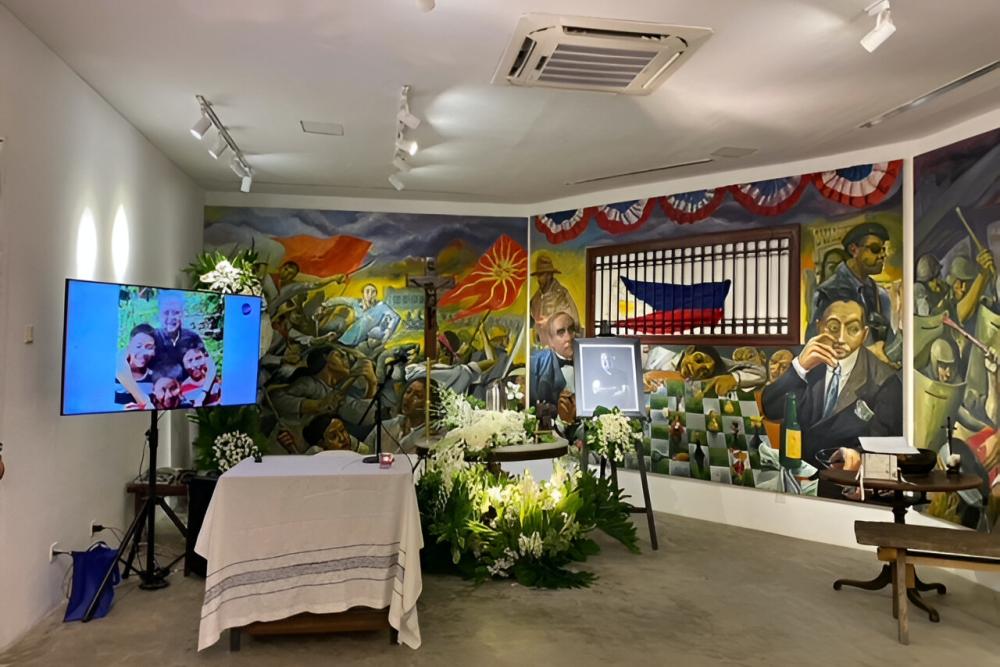
Three words: East Timor and APCET. In the last days of summer in 1994, we got word at the news desk of TODAY, the daily broadsheet paper published by Teddyboy Locsin, that nongovernment groups were preparing to host what would be called the Asia-Pacific Conference on East Timor, ‘APCET’ for short.
It had a simple goal: to awaken an amnesiac world that in Southeast Asia, a sliver of an island nation called East Timor had been illegally annexed by regional giant Indonesia, and its bravest men and women were waging a nearly two-decade campaign for freedom.
RC was the lead convenor of APCET, and among his trusted lieutenants for that event was the young writer-actor Joel Saracho, who provided the TODAY desk details of preparations daily.
Apparently eager to please Indonesia, its big brother in the ASEAN – to be fair, it was Indonesia’s Suharto-led government who first publicly supported the fledgling government of Corazon C. Aquino after the 1986 Edsa Revolt – the Philippine President in 1994, Fidel V. Ramos, banned the holding of APCET on Philippine soil. Thus began the long, dramatic saga of what was characterized as “the ban that backfired.”
Not one to be daunted, RC Constantino led organizers in strategizing how to go around the FVR-imposed ban. While lawyers questioned its constitutionality in the Supreme Court, RC’s group decided to hold the watershed conference at the University of the Philippines in Diliman, the best venue for freedom fighters. It was “defiance” written in capital letters.
Foreign participants were to be barred entry, the Philippine government announced, so RC, Saracho and the organizers thought of the most creative ways to skirt the order to immigration. A few of the would-be participants were detected at immigration and denied entry, among them the most famous, Danielle Mitterrand, wife of the French president. But most of the participants, not being as well-known as Ms. Mitterrand, evaded detection at the airport, passing themselves off as tourists and eventually finding their way to the conference venue at UP.
Thus it was that for five days in 1994, exactly three decades now, the world came to be reminded that East Timor was an independent nation, having gotten release earlier from colonizer Portugal, and it needed to be freed from its occupiers. Without sounding self-important in the least, RC and his group also showed the generous spirit of the Filipino democracy campaigners: their mission did not end in 1986, because they continued to look out for brothers similarly situated elsewhere. It took RC’s ragtag team to remind the western powers of this unfinished business in this part of the world.
In East Timor’s case, however, the attention generated by APCET, while indispensable to their struggle, did not yield immediate results. It took about five more years after APCET, before the independence campaign would come to a head, making East Timor a free country on the eve of a new millennium.
The months before independence were marred by so much sacrifice. The TODAY news desk, encouraged by its publisher Locsin, never let go of the story. Thus, it continued reporting on how Indonesian militia mobs would constantly harass East Timorese civilians, hundreds of whom received timely asylum from – you guessed it – their Filipino brothers. This time, it was elements of the Philippine Catholic clergy that stepped into the fray. At great risk to their lives, the Salesians of Don Bosco, who had a presence in East Timor, opened their convents and facilities to East Timorese civilians fleeing the rampaging militia.
At this point, the TODAY publisher, as I recall it, discreetly reached out to Cardinal Jaime Sin and asked what support the Catholic hierarchy in the Philippines could provide the East Timorese, as well as those who gave them succor, the Salesians. In no time, the cardinal had mobilized both clergy and business groups to mount a humanitarian campaign for East Timor, thus stitching together the campaign begun by RC’s group and the ones preparing for the final push to freedom.
It has been three decades since, and the journey of a liberated East Timor has not been easy. For Filipinos who often seem to have lost direction despite freedom after Edsa, this is not a surprise. Nation-building is a long, continuing struggle. But always, always, there is a point, there is a person, who really starts the ball rolling. As RC did, in “upsetting” a lethargic world, with APCET 1994.

